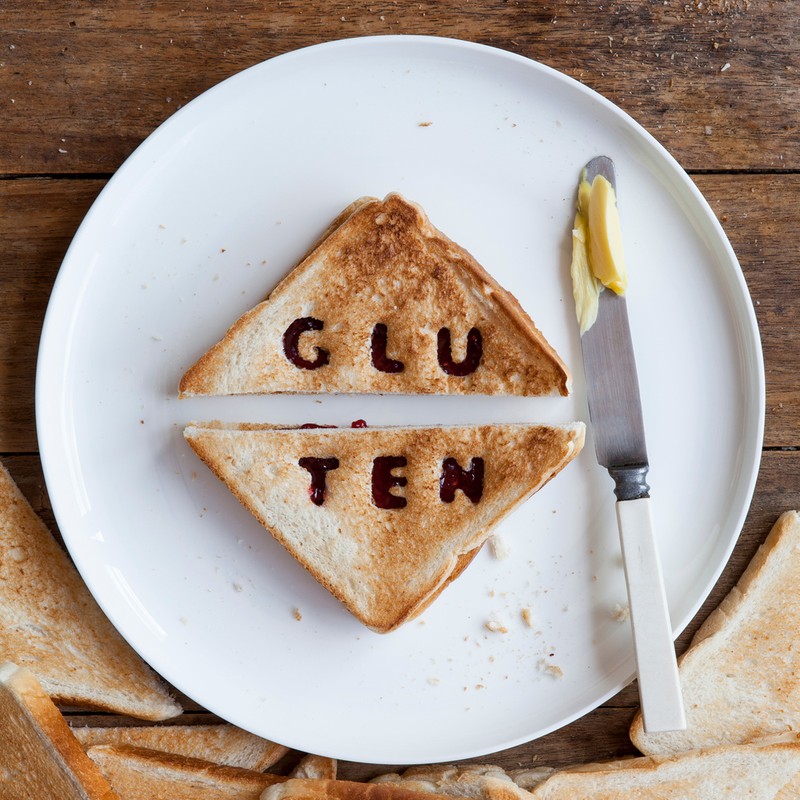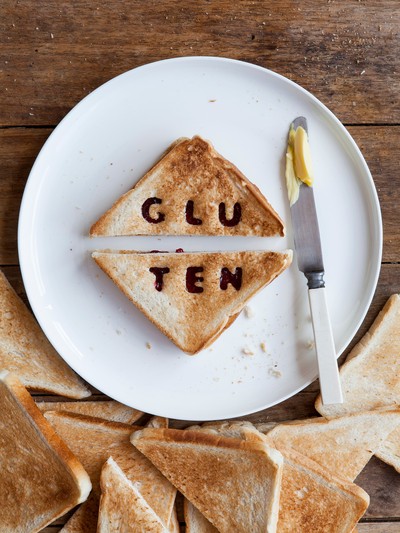

How To Deal With Food Intolerances Later In Life
Elizabeth Cooper, technical advisor at Bio-Kult…
The Immune System Plays A Part
“As the body ages, our immune system slows. Given a significant amount of our immune system is in the gut, it makes sense that gut health is affected over the years. Moreover, as we lose immune cells, inflammation increases, which can affect the permeability of the gut wall – our barrier to the outside world – enabling toxins and pathogens to enter. The stomach lining also thins with age, we lose cells involved in the digestion process, and we produce less hyaluronic acid and mucus, both of which are crucial for gut health. When the gut wall is damaged, we can no longer prevent undigested proteins from entering the bloodstream and creating an immune response. This creates a vicious cycle, causing further inflammation and damage to the gut wall, less efficient digestion and a greater risk of food intolerances.”
The Gut Becomes Less Effective
“The gut slows as we age. This means that the contents of the gut don’t move through the digestive tract efficiently, which can affect digestion and absorption, and lead to an overgrowth of bacteria in the small intestine, as well as less efficient excretion of toxins and waste products out of the body. All these factors can make you more likely to develop an intolerance later in life.”
Hormones Factor Into The Equation
“A reduction in oestrogen can affect the balance of the bacteria in your gut, leading to imbalance of beneficial and pathogenic gut bacteria – this is known as dysbiosis. Studies show there are marked differences in intestinal flora before and after the menopause.”
Gluten & Dairy Are Common Intolerances
“As the gut becomes less resilient, one of the first species of bacteria to dwindle is lactase-producing bacteria, which can affect your ability to digest lactose. Without enough lactase, you may experience symptoms like abdominal pain and bloating after eating lactose. The same goes for gluten. You may also find it increasingly tricky to digest foods high in fibre, such as garlic, onions and beans. The tell-tale symptoms in this case include increased gas, bloating, constipation and/or loose stools.”
Some People Are More At Risk
“An overuse of antibiotics and other medications increases your risk of developing an intolerance. These substances can damage the gut microbiota and reduce saliva, which is essential for digestion. Having diabetes also increases your risk, as nerve damage triggered by diabetes affects how efficiently the gut works, and this can throw your gut bacteria off balance. Nutritional deficiencies also raise the likelihood of an intolerance – some more commonly seen in older people include vitamin D, which is vital for gut immunity; magnesium, which can help increase gut efficiency and peristalsis; and zinc, which is integral to optimum stomach acid production as well as immunity and the resilience of your gut wall.”
Keeping A Food Diary Is The Best Test
“There are many intolerance tests available. These are usually done from blood samples but sometimes from hair samples, and tend to test levels of IgG (the main type of antibody found in our blood), although some may also test levels of IgA (an antibody blood protein that's part of our immune system). However, there are no approved tests. The current gold standard is to keep a food diary for at least a couple of weeks to help you identify the foods triggering your symptoms. Once you have an idea of the culprit, remove this food from your diet for 14 days and then reintroduce it over the following three days, starting with a small amount and eventually building up to a normal portion size. This will then allow you to notice any reduction or disappearance of symptoms when removing the food and any worsening of symptoms when reintroduced. Before doing an elimination test, always seek the advice of a registered nutritional therapist to ensure it’s done safely.”
Probiotics Are Worth Taking
“To build the gut’s resilience and support against intolerances, it’s essential to keep the gut lining healthy. Remember – a healthy and balanced gut microbiome can prevent pathogens adhering to the lining of the gut, where they can cause disruption. Beneficial bacteria in the gut also ferment the fibre we eat and this,, in turn produces certain acids that feed the gut’s cells to help them repair. Studies show taking a multi-strain probiotic supplement can help, especially with a lactose intolerance. Also try supplementing with butyric acid – one of the main acids produced by the stomach – which has been shown to support the gut barrier and reduce inflammation.”
Visit Bio-Kult.co.uk
Lorraine Perretta, head of nutrition at Advanced Nutrition Programme…
Your Go-To Foods Could Be The Problem
“Many women who have never suffered with food intolerances find they start reacting to gluten and dairy as well as other foods after the menopause. It’s also surprisingly common to develop an intolerance to foods you eat regularly. For example, if you eat gluten three times a day – say, toast for breakfast, a sandwich for lunch and then pasta for dinner – this frequency can trigger an intolerance. Focusing on more variety in the diet can reduce your risk.”
Symptoms Can Be Physical & Mental
“Digestive symptoms like indigestion, bloating, increased gas, constipation and diarrhoea can all be signs of a food intolerance, but pay attention to your emotional state, too. Fluctuating moods, depression, brain fog and poor concentration, as well as headaches and lethargy, can also be signs.”
Mara Calvi, nutritionist & naturopath…
You May Lack Digestive Enzymes
“Ageing affects every part of your body, your gut included. If you struggle to eat as much as you used to, this is common and is a sign your stomach is losing its elasticity, meaning you can’t eat the quantity you used to. Moreover, as we age, our ability to produce digestive enzymes slows. Enzymes are chemicals that break down our food, meaning a lack of them can cause bloating or feelings of uncomfortable fullness. Plus, by the time we are 50, we will have been exposed to chemicals, medicines and pollutants in the environment, all of which trigger inflammation in the gut. It could be worth supplementing with digestive enzymes, especially before large meals. A probiotic supplement can also help – a general daily formula is a good option. Remember that if you don’t replenish your microbiome regularly, beneficial bacteria will disappear from the gut after 21 days.”
Stress Plays A Part
“A stressed person is more likely to develop a food intolerance. Stress causes inflammation and constriction of the gut, forcing it to work harder to digest. When this happens on a regular basis, it can lead to an intolerance. At the same time, heavy drinking, smoking and sugar consumption all increase inflammation in the gut and can trigger an intolerance.”
Visit SomaVitalityWellness.com
Looking to get your gut health back on track? Here, Elizabeth shares her top tips…
Eat Mindfully
“Chewing your food well is the first step to digestion, as it will get your digestive juices flowing and ensure the food you’re eating is broken down and absorbed effectively.”
Prioritise Plants
“A 2018 study found that people who consume more than 30 types of plants per week had a higher diversity of beneficial bacteria in the gut compared to those who consume ten or fewer plants per week. This is because plant foods are high in different types of fibre which feed our gut. Plant foods are also rich in polyphenols, which boost beneficial bacteria and support immunity.”
Incorporate Fermented Foods
“In addition to taking a good multi-strain live bacteria supplement, include fermented food in your diet – think natural yoghurt, sauerkraut, kefir and kombucha. Studies show those who regularly eat fermented food have better gut diversity and less inflammation.”
Get A Good Night’s Sleep
“Disordered sleep and poor-quality sleep is associated with altered bacterial composition and inflammation in the gut.”
Stay Active
“Include 30 to 60 minutes of moderate exercise into your daily routine – this could be walking the dog, gardening or going to the gym or an exercise class. Research shows exercise is good for gut health, enriching microbial diversity and increasing the number of beneficial bacterial species. Exercise can also reduce stress levels, which we now know is intrinsically connected to the gut microbiome.”
Visit Bio-Kult.co.uk, AdvancedNutritionProgramme.com & PimlicoOsteopathy.com
DISCLAIMER: Features published by SheerLuxe are not intended to treat, diagnose, cure or prevent any disease. Always seek the advice of your GP or another qualified healthcare provider for any questions you have regarding a medical condition, and before undertaking any diet, exercise or other health-related programme.
DISCLAIMER: We endeavour to always credit the correct original source of every image we use. If you think a credit may be incorrect, please contact us at info@sheerluxe.com.

